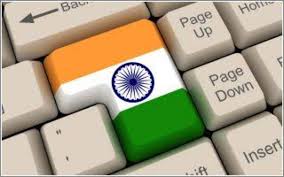The latest revelations about Amazon’s business practices in India bring another big tech ploy to eat small businesses out of house and home to light. Do revelations like these have any impact on big tech, which never shies away from tooting their horn about the good they do? Unfortunately, not much.
Big tech continues to hide their true intentions in philanthropy and social issues close to people’s heart. A skeptical eye must be kept on big bad tech.
Big tech continues to hide their true intentions in philanthropy and social issues close to people’s heart. A skeptical eye must be kept on big bad tech
Two days back, five US lawmakers accused Amazon of the possibility that they lied to the US Congress, following a Reuters investigation that revealed the e-commerce giant’s systematic campaign in India of ‘copying products and manipulating search results.’
A few days back, US Senator Elizabeth Warren called for breaking up Amazon even as Indian retailers demanded a government probe into Amazon’s practices following the Reuters investigation.
Amazon has denied the accusations.
Amazon should change its tag line from A to Z to Ctrl + C
— Ravula Randeep (@caravulasandeep) October 14, 2021
The Reuters probe scanned thousands of pages of internal Amazon documents that included emails, strategy papers, and business plans. They confirmed that in India, Amazon definitely had an official, clandestine policy of manipulating search results to favour Amazon’s own products. They also copy other sellers’ goods, which was reviewed by at least two senior company executives.
Big Bad Tech
This isn’t the first time big tech has been accused of business practices that exploit the smaller competition. And it won’t be the last. But it does bring certain aspects of big tech into sharp contrast with what they are going above and beyond to portray.
In September, Amazon launched Kisan Store on Amazon.in to support Indian farmers with availability of agricultural inputs and products at competitive prices, with doorstep delivery. The company also signed an MoU with the Government of Gujarat to drive e-commerce exports for MSMEs in the state.
Not just Amazon, but other big tech are well aware that supporting small businesses brings in reputation, since the SMB sector is always close to people’s heart in any country. Their philanthropic endeavours often revolve around socially sensitive areas like agriculture in India, supporting racial causes in the US, or COVID-19 vaccinations anywhere
Not just Amazon, but other big tech are well aware that supporting small businesses brings in reputation, since the SMB sector is always close to people’s heart in any country. Their philanthropic endeavours often revolve around socially sensitive areas like agriculture in India, supporting racial causes in the US, or COVID-19 vaccinations anywhere.
For example, OYO and Microsoft announced a strategic alliance to digitally transform the badly hit travel industry. Or Apple selected 15 black and brown-owned businesses for its Impact Accelerator.
Read more: The great wooing: Is Apple close to finally convincing the Indian middle class?
In August, Microsoft joined hands with Invest India to empower 11 tech startups. In the same month, Facebook launched a program to help small Indian businesses secure loans.
Big Tech Under the Lens
At the same time though, the media, governments, and concerned organisations do keep a skeptical eye on big tech.
Since 2019, the US House Judiciary Committee has been investigating competition in digital markets, which includes Amazon’s usage of proprietary seller data from its platform, as well as the company unfairly favouring its own products.
This isn’t the first time big tech has been accused of business practices that exploit the smaller competition. And it won’t be the last. But it does bring certain aspects of big tech into sharp contrast with what they are going above and beyond to portray
Several big tech companies, including Amazon, Facebook, Apple, and Google have come under not just Washington’s lens, but also Europe and other parts of the world. Concerns about these companies having too much power and getting away with unfair practices has rung alarm bells for regulators, lawmakers, and consumer groups worldwide.
In September, Reuters reported that Google abused the dominant position of its Android operating system in India, using its “huge financial muscle” to illegally hurt competitors.
Also, Google India Digital Services Private Limited has also been approached for unauthorized access, use and storage of users’ Aadhaar and banking information by Google Pay.
Internationally, South Korea’s competition regulator declared a US$176.9 million fine on Google for allegedly using its dominant position in the mobile operating system market to suppress competition.
It's with a heavy heart today that we're announcing the discontinuation of our award-winning iPhone keyboard for blind users.
Apple has thrown us obstacle after obstacle for years while we try to provide an app to improve people's lives, and we can no longer endure their abuse. pic.twitter.com/cH1HCQzeP1
— FlickType Watch Keyboard (@FlickType) August 16, 2021
Apple Inc. too is facing an antitrust challenge in India for having reportedly abused its dominant position in the apps market by forcing developers to use its proprietary in-app purchase system, according to Reuters.
According to The Verge, Apple has quite a history of copying the ideas from its own app developers and incorporating them into its own operating systems for free. Case in point is a recent lawsuit occurring over Apple Watch’s new swipe keyboard.
Indian Retail Demands Action
Small businesses that become victims of big tech’s practices also raise their voice.
Following the recent revelations, a group representing 80 million retail stores in India have demanded an investigation into Amazon.
“Amazon is causing a great disadvantage to the small manufacturers. They are eating the cake that is not meant for them,” Praveen Khandelwal of the Confederation of All India Traders told Reuters.
While the current exposure or ongoing lawsuits hardly make a dent in big tech’s pocket, the consumer must remain aware of the fact that in the end these are just businesses. They are here for profits
Time and again Indian retailers have complained about foreign e-commerce businesses such as Amazon and Walmart owned Flipkart’s unfair business practices that harm smaller companies. The bigger companies have denied the allegations so far.
The Alliance of Digital India Foundation, a non-profit that represents several Indian startups, called the practices detailed in the Reuters report “highly deplorable”, questioning “the credibility of Amazon as a good faith operator in the Indian startup ecosystem”.
In a blog post, the group has appealed to the Indian government to take action against “Amazon’s predatory playbook of copying, rigging and killing Indian brands”.
Some Indian media too has been making noise over the foreign big tech practices in India.
Read more: {One for the browser underdogs: Vivaldi Translate} Keeping translations out of reach of Big Tech
In September, the RSS’ official magazine Panchjanya called Amazon the ‘East India Company 2.0’, while Swarajyamag questioned Google’s venturing into the news business in India, when the tech giant introduced an accelerator program for digital news startups and support for more Indian languages in Google News Showcase.
While the current exposure or ongoing lawsuits hardly make a dent in big tech’s pocket, the consumer must remain aware of the fact that in the end these are just businesses. They are here for profits.
While there is nothing wrong with that, we only ask that they do so with fairness.










